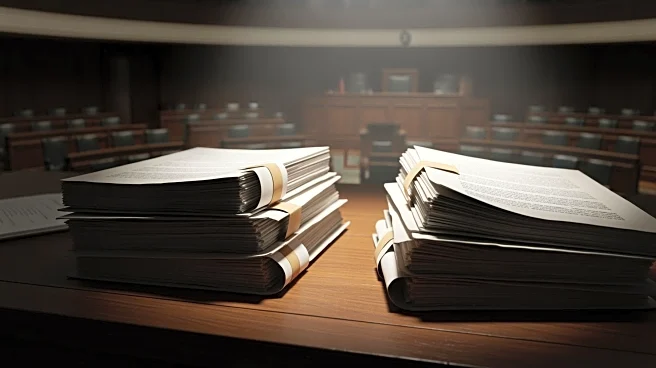What's Happening?
President Trump has reiterated claims that his administration has ended eight wars in eight months, a statement made during a ceasefire ceremony between Thailand and Cambodia. Trump emphasized his role
as a peacemaker, asserting that no other U.S. president has solved a war. Historical context shows that several presidents have contributed to ending conflicts, such as Theodore Roosevelt, who received the Nobel Peace Prize for his role in ending the Russo-Japanese War. Trump's claims have been met with skepticism, as analysts point out exaggerations and inaccuracies. The conflicts mentioned include Israel-Hamas, Israel-Iran, Egypt-Ethiopia, India-Pakistan, Serbia-Kosovo, Rwanda-DRC, Armenia-Azerbaijan, and Cambodia-Thailand. While Trump has been involved in negotiations, many of these conflicts remain unresolved or fragile.
Why It's Important?
Trump's assertions aim to bolster his image as a global peacemaker, potentially influencing his campaign and public perception. By claiming unprecedented diplomatic success, Trump seeks to strengthen his case for a Nobel Peace Prize. These statements impact how voters and the international community view his foreign policy record. However, experts highlight the provisional nature of these agreements, with ongoing violence and stalled negotiations in several regions. The portrayal of Trump as the sole resolver of wars may affect diplomatic relations and the assessment of U.S. involvement in global conflict resolution.
What's Next?
The future of these diplomatic efforts remains uncertain, as many agreements are fragile and provisional. Experts anticipate continued volatility and unresolved issues in regions like Gaza, Iran, and the Congo. Trump's administration may face challenges in maintaining peace and facilitating further dialogue. The international community will likely scrutinize these claims, assessing the real impact of U.S. diplomacy under Trump's leadership. Ongoing tensions and potential flare-ups could test the durability of these ceasefires and agreements.
Beyond the Headlines
The ethical and cultural dimensions of Trump's claims raise questions about the accuracy and impact of political rhetoric in diplomacy. The exaggeration of achievements may influence public trust and the credibility of U.S. foreign policy. Long-term shifts in international relations could be triggered by the perception of U.S. involvement in conflict resolution. The portrayal of Trump as a peacemaker may affect future diplomatic strategies and the role of the U.S. in global peace efforts.









